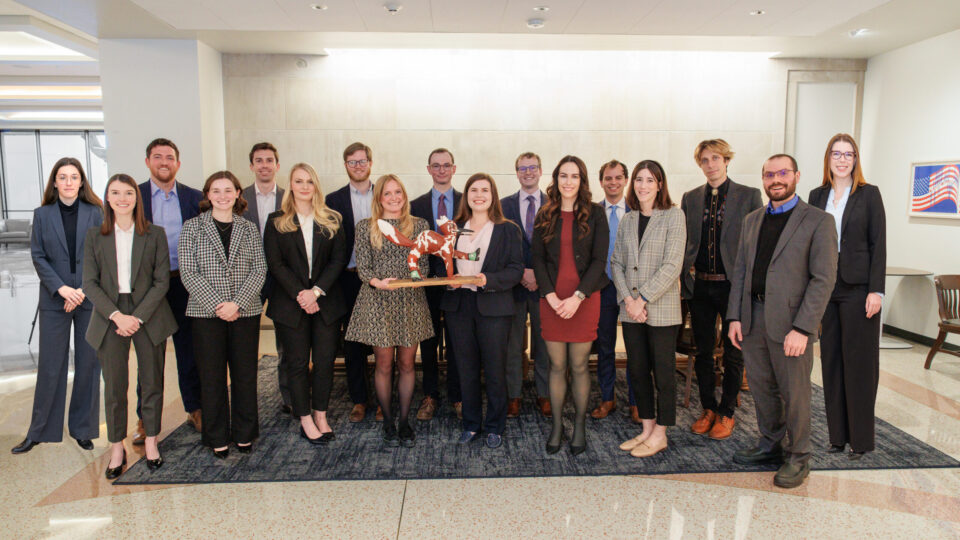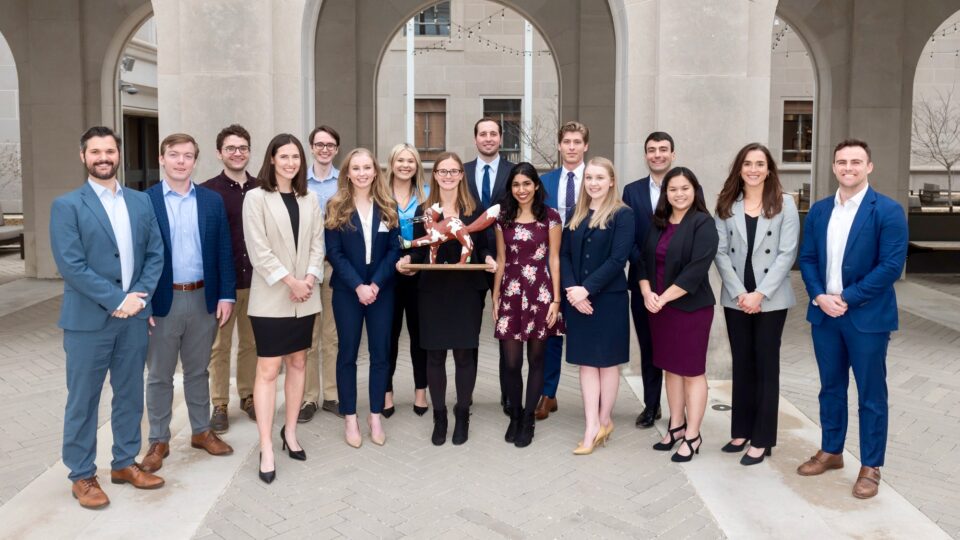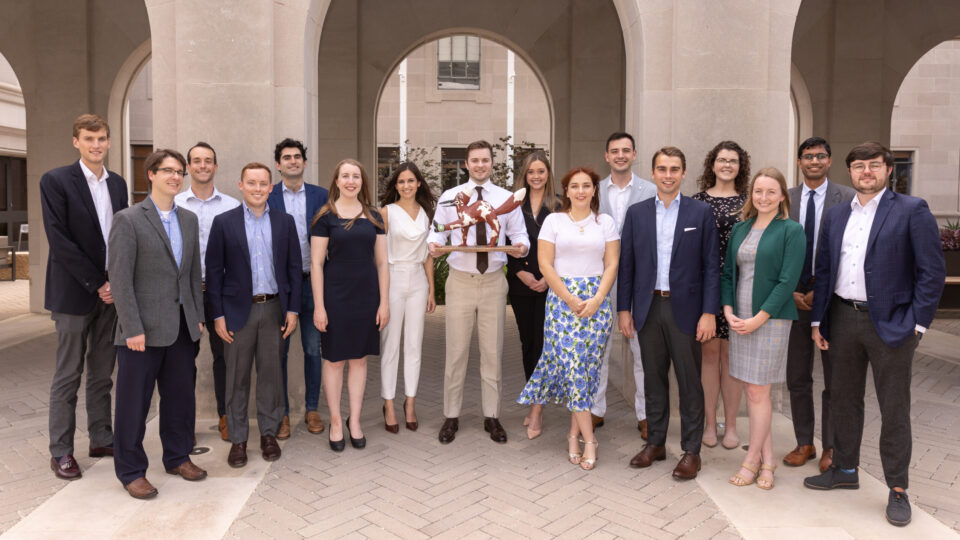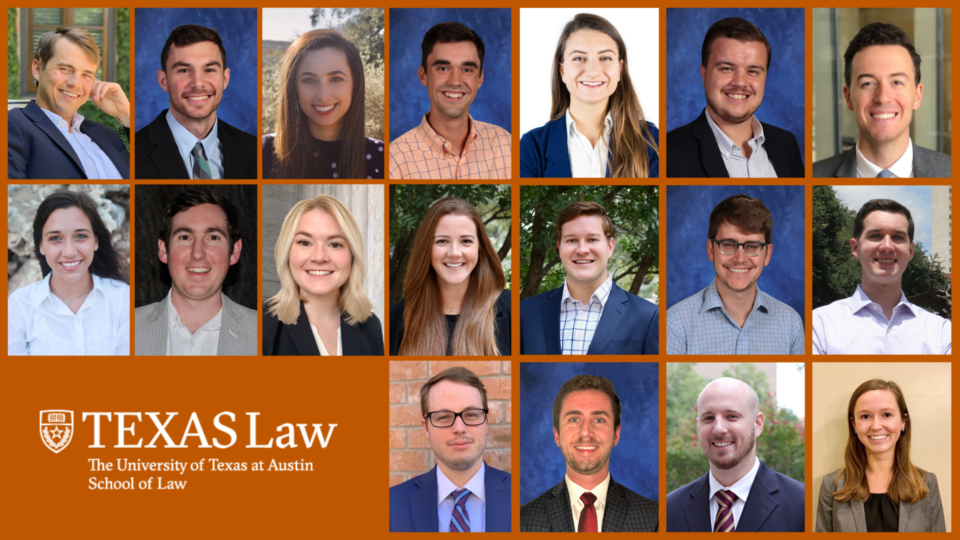Since 1912, Chancellors has been the Law School’s most prestigious honor society. It recognizes the 16 law students who have achieved the highest grade-point averages in their class through their second year. This society exists only at The University of Texas School of Law and is more selective than national programs such as the Order of the Coif.
The University of Texas Department of Law opened in 1883, the year the University was founded. In 1908, Dean John Charles Townes was charged with the mission of converting the law department to a school of law. In 1911, two students at the University formed the Friars Society, the first honor society on campus, to recognize four students from the junior and senior class. Karl Bettis, who is listed as the first Chancellor, reportedly was the moving force behind the formation of the law department honor society.
The early Chancellors were selected from the top 20% of the class, but academic achievement was not the only basis for selection. The organization sought to reward students who had made significant contributions to the University, the law department, and society. From 1912 to 1959, the bylaws of the Chancellors required members to be men. In 1959, Betty Jo Wiest (later Betty Jo Christian) had the second highest average in her class. The Chancellors ignored the bylaws, and she was elected Vice Chancellor. In 1961, the bylaws were amended to state “Personality, race, creed, sex, or other factors extrinsic to those announced in the Constitution of Chancellors shall never be considered in selecting members of Chancellors.” Since that time, membership has only been based upon academic performance.
The Chancellors society recognizes a pinnacle of academic achievement. Membership requires a grade-point average of approximately 4.0. The Chancellors with the four highest grade-point averages are officers of the society for their year: Grand Chancellor, Vice-Chancellor, Clerk, and Keeper of the Peregrinus. The remaining honorees are Chancellors-at-Large. In the case of a tie in grade-point average, more than 16 students can become Chancellors, and more than one student can hold an officer’s title.
In 2007, Professor and former Chancellor David Anderson started a tradition of a ceremony with a former Chancellor as speaker, and this tradition continues today. During the yearly installation ceremony, new Chancellors sign their names and hometowns in the Chancellors book, which has been in use since 1929. For over 100 years, the Chancellors organization has nurtured the Law School’s tradition of excellence.
Chancellors by Year
2020s
1980s
1970s
1960s
1950s
- 1959–60 (Spring)
- 1959–60 (Fall)
- 1958–59 (Spring)
- 1958–59 (Fall)
- 1957–58 (Spring)
- 1957 (Spring)
- 1956–57 (Fall)
- 1955–56 (Spring)
- 1955–56 (Fall)
- 1954–55 (Spring)
- 1954–1955 (Fall)
- 1954 (Spring)
- 1954 (Fall)
- 1953 (Spring)
- 1952–53 (Fall)
- 1952 (Spring)
- 1952 (Fall)
- 1951 (Spring)
- 1951 (Fall)
- 1950 (II)
- 1950 (I)




